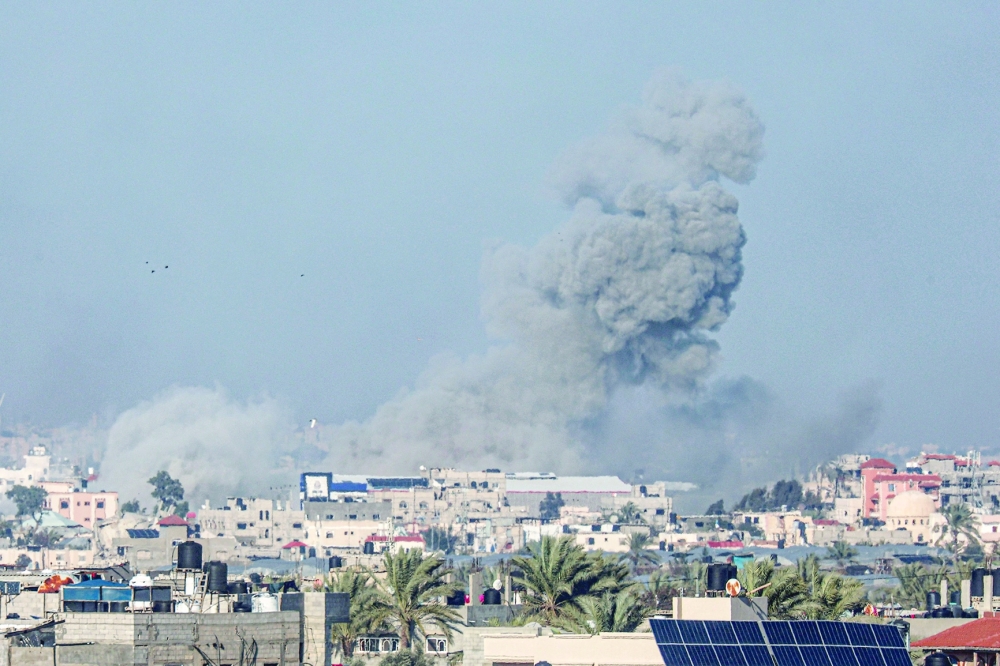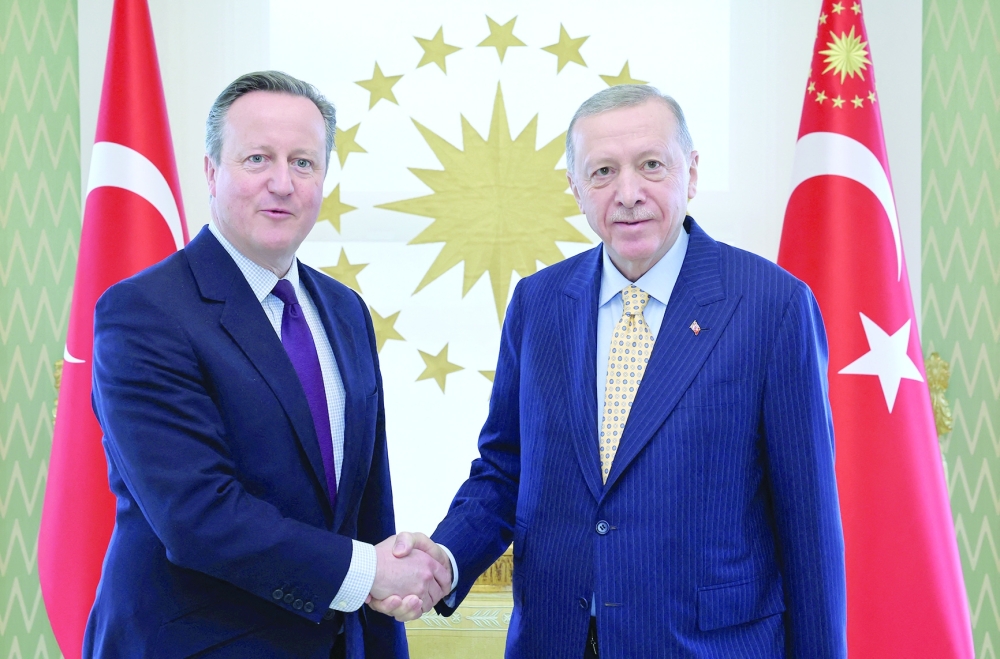

ISTANBUL: Talks have made progress on a deal towards a ceasefire in Gaza, bringing more aid into the Palestinian enclave and the release of Israeli hostages, British Foreign Secretary David Cameron said in an interview on Friday. International pressure has been focused on a phased approach to releasing Israeli hostages taken by Gaza's ruling Hamas group in return for a break in hostilities and the release of Palestinian prisoners held in Israel.
"Achieving a pause where we stop the fighting and start looking at how to get aid in and hostages out, I think there is a prospect of that," Cameron said and a Turkish broadcaster in Istanbul. "I think we are making some progress." In the interview, on the last stop of a diplomatic tour, Cameron said Israel was also considering a British proposal to open its port of Ashdod to aid shipments to Gaza, but that it would "take a lot of pushing" to reach an agreement.
Cameron has met Israeli Prime Minister Benjamin Netanyahu and politicians in the Israeli-occupied West Bank, where the Western-backed Palestinian Authority is based, and Qatar to discuss the situation in Gaza. In his meetings in Israel, Cameron said he stressed the need for a pause in fighting to secure the release of hostages seized by Hamas during a cross-border attack on October 7.
"I was pressing for what I think it is in everyone's interest, including Israel's interest: to have that immediate pause because it's only then that you can bring the hostages back home," he said. Israel has vowed not to end its war until Hamas has been eradicated and all hostages freed. Hamas says any deal must hinge on Israel ending its offensive and siege and withdrawing from the Gaza Strip.

Mediated talks on a month-long truce that could see hostages freed in swaps for Palestinian prisoners in Israel have resumed, but have snagged on the two sides' differences over how to bring an end to the war, sources said. The war, which began after Hamas fighters killed 1,200 people and captured more than 240 hostages in a surprise incursion has displaced most of the Gaza Strip's 2.3 million people, some multiple times. Gaza officials said on Friday the death toll from Israel's military campaign in the Hamas-run Palestinian territory, now in its fourth month, has risen to 26,083.
Shortly after Cameron spoke, the International Court of Justice ordered Israel to do more to help Palestinian civilians and said the "catastrophic humanitarian situation in the Gaza Strip is at serious risk of deteriorating". Gaza has run gravely short of food, water, medicines and fuel, giving rise to a humanitarian disaster, but only small amounts of aid have trickled into the enclave due to dangers from shelling and fighting, and procedural obstacles.
Cameron said at least 500 trucks of aid a day needed to get into Gaza and opening up the port at Ashdod, just a short distance up the Mediterranean coast from Gaza, would help. "Ashdod opening would be another massive way of getting aid in, and it's actually essential that we get that aid in," the former British prime minister said. "I made the case to the Israeli government, they are considering it, but I know that it's going to take a lot of pushing before we get that fixed."
Limited amounts of aid have been delivered through the Rafah crossing between Egypt and Gaza, and since December through the Israeli-controlled crossing of Kerem Shalom. Israel, which denies accusations that it has held up aid deliveries, says its role is only to inspect relief supplies going into Gaza for security reasons.
Cameron said Israel needed to ensure that checkpoints were open for longer, the United Nations could move aid around Gaza safely, and the water was switched back on. "I want to see every bottleneck be removed," he said. "Israel is responsible for what happens in Gaza, and we need to avoid more of a humanitarian catastrophe." Food is scarce in the south of Gaza, and the situation is even worse in the north and centre of the enclave, where aid agencies say thousands of people face starvation, especially small children who are most vulnerable to malnutrition.
Oman Observer is now on the WhatsApp channel. Click here



